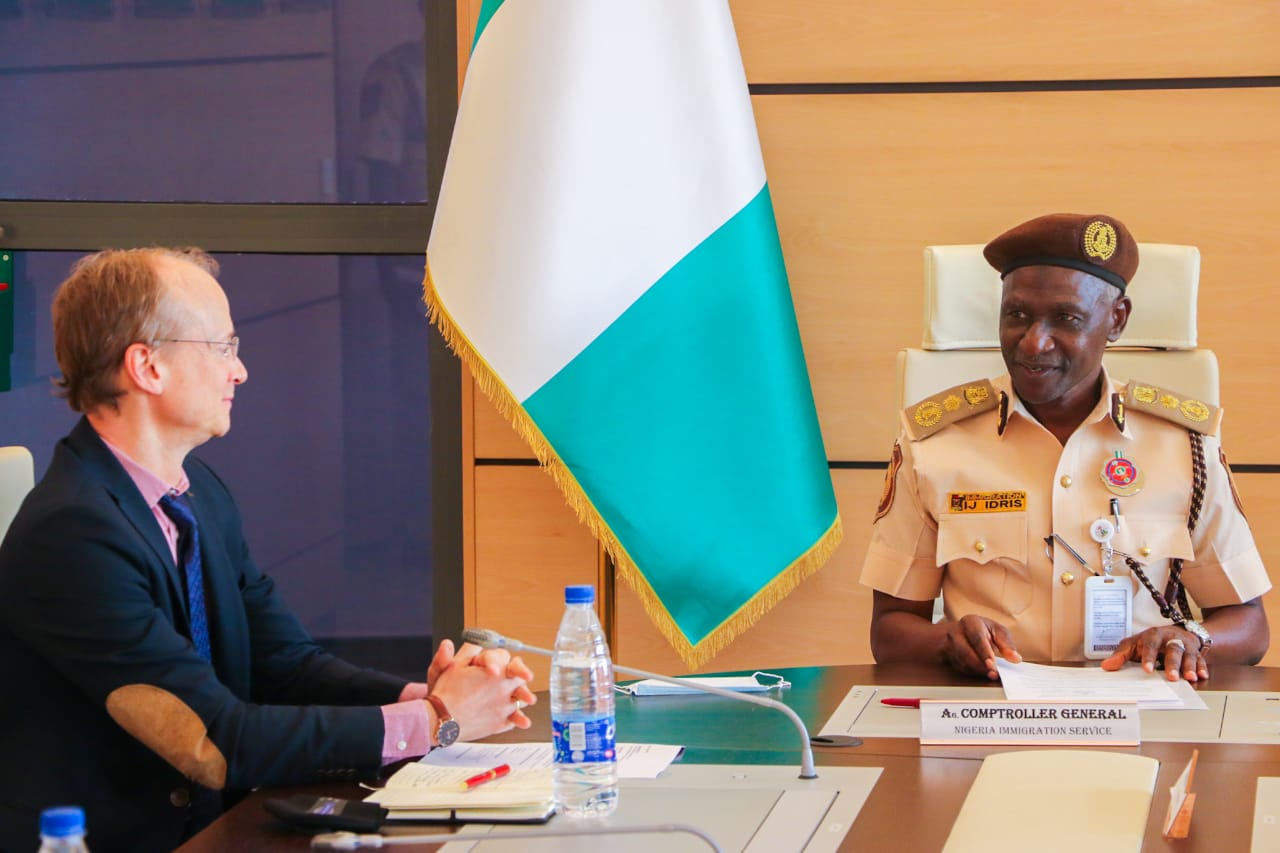Business
Nigeria’s China Imports Up By 183.91%, Debts Hit $3.67bn

Nigeria’s import from China rose by 183.91 per cent from N530.98 billion in the first quarter of 2018 to N1.51 trillion the same period in 2022.
Data on foreign trade from the National Bureau of Statistics (NBS) shows that Nigeria had its relates imports from China.
Specifically, within the period under review, China occupies the first spot out of 10 countries from which Nigeria engaged in import.
Available data further showed that while China is responsible for the bulk of the nation’s imports, export to China is negligible, and the country was missing from the nation’s top 10 export destination in the first quarters of 2018 – 2020, and that of 2022.
In the first quarter of 2021, however, China ranked on the top 10 export destination when it ranked third with N190.11billion. In the same quarter, total imports from China were put at N2.01trillion.
Meanwhile, imports from China grew across the five quarters under review. In Q1 2018, it was N530.98bn, but grew to N979.29 billion in Q1 2019, and N1.11tn in Q1 2020. It was highest in Q1 2021 at N2.01trillion and dropped to N1.51 trillion in Q1 2022.
According to the NBS, imports from China include motorcycles, machines for reception of voice, electrical apparatus for line telephony, or line telegraphy, mackerel, parts of machinery for working on rubber or plastics, crude salt, compressed salt used in animal feeding, antibiotics, and herbicides.
Nigeria’s exports to China in the period under review included, polyethylene, leather, sesamum seeds, cashew nuts, zinc ores and concentrates, as well as lead ores and concentrates.
In Q1 2022, imports to China accounted for 25.55 per cent of the total import of N5.90 tillion; in Q1 2021, it was 29.34 per cent of the total imports (N6.85 trillion); in Q1 2020, it was 26.28 per cent of the total import (N4.22 trillion); in Q1 2019, it was 26.4 per cent of total imports (N3.70 trillion); while it was 21.1 per cent of the total imports (N2.52 trillon) in Q1 2018.
Commenting on the situation, the Chairman, Export Group, Manufacturers Association of Nigeria/Vice Chairman, Sapele Integrated Industries Limited. Mr Ede Dafinone, said there is no equality requirement on imports and exports for nations.
“There is no guarantee or requirement for any country to import and export the same volume from each other.
“If Nigeria is exporting a certain quantity worth of goods and services and importing another quantity of goods and services from another country, the issue is what is the next difference with net import and export.
“There is no requirement as to which country is responsible for this. It doesn’t matter where the deficit is as long as there is an overall surplus, he said.
The bilateral relationship between Nigeria and China has improved in recent years: in the period under review, Nigeria’s borrowing from China increased by 89.94 per cent to hit $3.67 billion, making it the nation’s largest bilateral lender.
According to the Debt Management Office, about $3.12 billion of the loans from China are project-tied.
Such projects include: 11 projects such as the Nigerian Railway Corporation’s modernisation project; Abuja Light Rail project; and Four Nigerian airports’ terminals expansion project in Abuja, Kano, Lagos, and Port Harcourt.
Business
FIRS Clarifies New Tax Laws, Debunks Levy Misconceptions

Business
CBN Revises Cash Withdrawal Rules January 2026, Ends Special Authorisation

The Central Bank of Nigeria (CBN) has revised its cash withdrawal rules, discontinuing the special authorisation previously permitting individuals to withdraw N5 million and corporates N10 million once monthly, with effect from January 2026.
In a circular released Tuesday, December 2, 2025, and signed by the Director, Financial Policy & Regulation Department, FIRS, Dr. Rita I. Sike, the apex bank explained that previous cash policies had been introduced over the years in response to evolving circumstances.
However, with time, the need has arisen to streamline these provisions to reflect present-day realities.
“These policies, issued over the years in response to evolving circumstances in cash management, sought to reduce cash usage and encourage accelerated adoption of other payment options, particularly electronic payment channels.
“Effective January 1, 2026, individuals will be allowed to withdraw up to N500,000 weekly across all channels, while corporate entities will be limited to N5 million”, it said.
According to the statement, withdrawals above these thresholds would attract excess withdrawal fees of three percent for individuals and five percent for corporates, with the charges shared between the CBN and the financial institutions.
Deposit Money Banks are required to submit monthly reports on cash withdrawals above the specified limits, as well as on cash deposits, to the relevant supervisory departments.
They must also create separate accounts to warehouse processing charges collected on excess withdrawals.
Exemptions and superseding provisions
Revenue-generating accounts of federal, state, and local governments, along with accounts of microfinance banks and primary mortgage banks with commercial and non-interest banks, are exempted from the new withdrawal limits and excess withdrawal fees.
However, exemptions previously granted to embassies, diplomatic missions, and aid-donor agencies have been withdrawn.
The CBN clarified that the circular is without prejudice to the provisions of certain earlier directives but supersedes others, as detailed in its appendices.
Business
Shippers Council Vows Commitment To Security At Nigerian Ports
-

 Featured4 days ago
Featured4 days agoOil & Gas: Rivers Remains The Best Investment Destination – Fubara
-
Nation5 days ago
MOSIEND Calls For RSG, NDDC, Stakeholders’ Intervention In Obolo Nation
-
Nation5 days ago
Hausa Community Lauds Council Boss Over Free Medical Outreach
-

 Nation5 days ago
Nation5 days agoOgoni Power Project: HYPREP Moves To Boost Capacity Of Personnel
-
Nation5 days ago
Association Hails Rivers LG Chairmen, Urges Expansion Of Dev Projects
-
Nation5 days ago
Film Festival: Don, Others Urge Govt To Partner RIFF
-

 News5 days ago
News5 days agoNDLEA Arrests Two, Intercepts Illicit Drugs Packaged As Christmas Cookies
-

 News5 days ago
News5 days agoTroops Rescue 12 Abducted Teenage Girls In Borno

